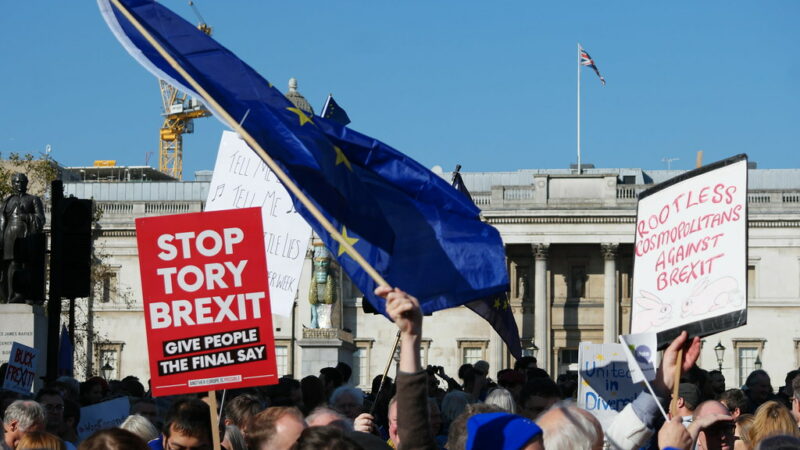'The US snubbed them on the issue of ending tariffs on UK imported steel and aluminium'

Tony Burke is President of the Confederation of Shipbuilding and Engineering Unions; a former assistant general secretary of Unite; Trade Union co-ordinator for the Morning Star newspaper and chair of the Campaign For Trade Union Freedom.
The Tory government’s problems on trade got worse last week, when the US snubbed them on the issue of ending tariffs on UK imported steel and aluminium and also rejected a UK plea for face to face talks to remove such tariffs.
Both the trade minister and the Foreign Secretary Liz Truss have been knocked back by US trade negotiators. Anne-Marie Trevelyan, the Tory trade minister had requested her US counterpart Gina Raimondo, the commerce secretary in Washington, to come to the UK for face to face discussions to end the tariff problem – but Ms Raimondo said that she is ‘too busy to travel’ to the UK.
Liz Truss, who is a front runner to replace Boris Johnson as Prime Minister should he resign in the wake of ‘partygate’, had also recently tried to smooze US trade negotiator Katherine Tai by dining with her at an expensive London club (the original meal deal was roundly criticised for costing £3000 – but later reduced) but Truss has also got the cold shoulder.
Truss’ recent statements about triggering Article 16 to end the UK-EU Brexit deal over the Northern Ireland protocol and similar threats by Trevelyan have not helped. Sabre rattling does not impress the US trade team.
The snub is a major embarrassment for the Government because the EU and US reached an agreement in October 2021 to suspend the tariffs – yet British exporters are still forced to pay the 25% tariff on steel and 10% on aluminium.
The US has said it would only talk about dropping the tariffs imposed by Donald Trump on UK steel and aluminium imports (which are putting put the UK steel and aluminium jobs in jeopardy) “when the time is right”.
EU firms now have a significant price advantage over the UK with potential loss of business that won’t come back UK steelmakers say.
One UK steel exporter United Cast Bar is saying it will move production to Spain and is unlikely to move production back to the UK once it had been moved, unless an agreement was reached with the US very quickly.
Ms Tai told a recent meeting that negotiating the ending of EU tariffs took six months and that they also wish to open negotiations with Japan about tariffs in imported metals.
In the background, of course, is the Northern Ireland Protocol with Biden’s administration expressing concern at the UK government demands to the EU to change the protocol (which we had signed up for) – which in turn could threaten peace in Ireland.
Although Katherine Tai refused talk about a link between Northern Ireland and tariffs she said the Biden administration would follow developments between the UK and the EU on issues relating to Northern Ireland.
This week the Sheffield Star which has a number of steel industry plants within its South Yorkshire readership area also slammed the government over their focus on trade deals with India and with the Trans-Pacific Partnership trading bloc saying that the government should concentrate on sorting out the UK steel industry’s problems – never mind “deals that can take years to negotiate.”
Tony Burke is the president of the Confederation of Shipbuilding and Engineering Unions which includes the UKs steel industry unions.
To reach hundreds of thousands of new readers we need to grow our donor base substantially.
That's why in 2024, we are seeking to generate 150 additional regular donors to support Left Foot Forward's work.
We still need another 117 people to donate to hit the target. You can help. Donate today.



